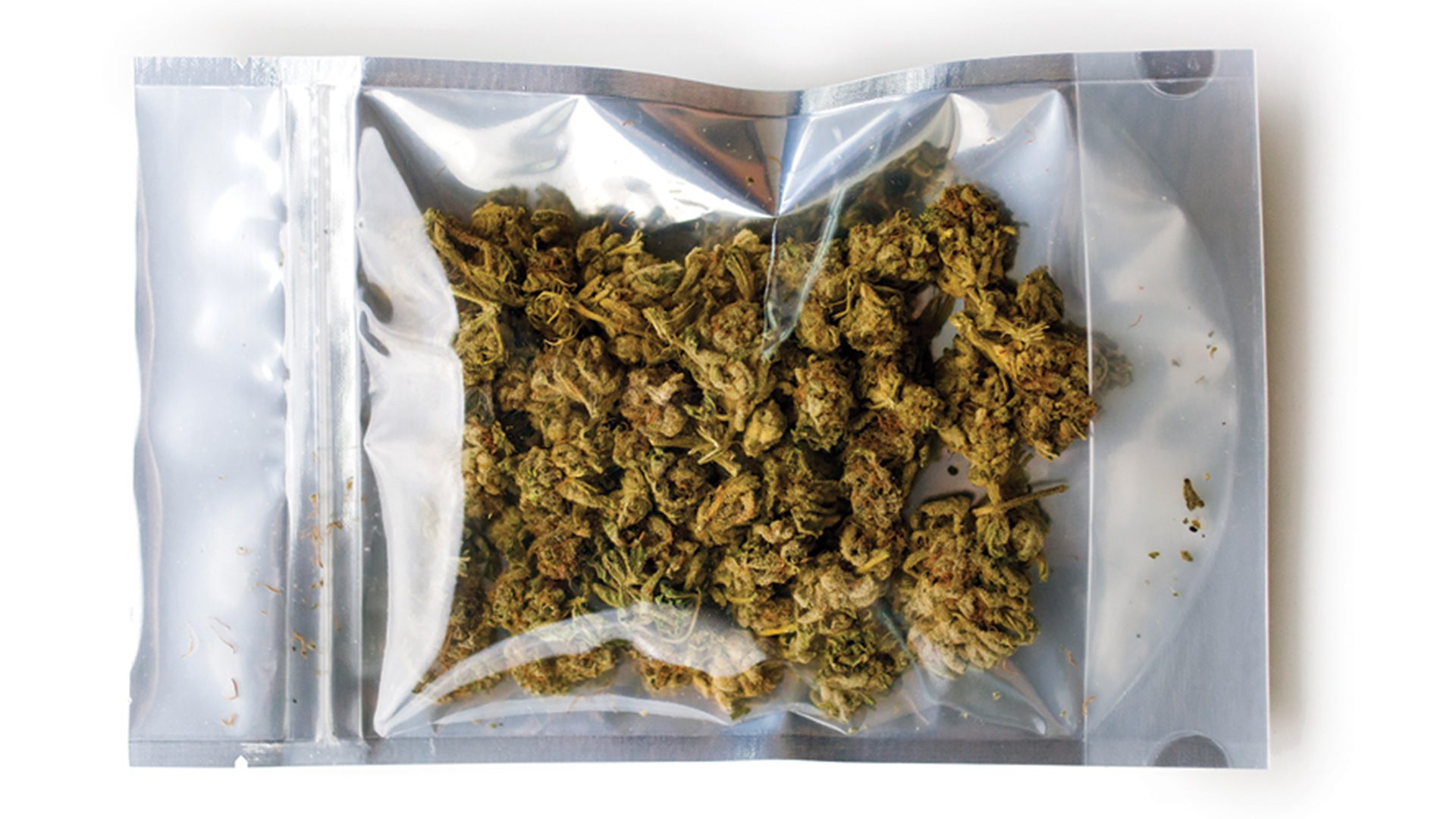- May 22, 2019
- By Liam Farrell
The gloom from a rainy February night on the Oakland side of the San Francisco Bay dissipates inside the doors of Harborside.
Hipsters, hippies and soccer moms wander past display cases on shiny wood floors, and browse the selection of body lotions, cookies and other products with names like Maui Pacific Island, King Louis and Swami Select Hindu. Perky counter and floor workers chat with customers to a soundtrack of Otis Redding singing “The Happy Song.”
With different products, this establishment co-founded by Steve DeAngelo ’86 would be a more typical brick in the 2019 cultural wall, akin to the trendy cafes, gadget and liquor stores found in up-and-coming or arrived areas.
But Harborside isn’t offering espressos, earbuds or a bourbon barrel stout—it’s selling cannabis.
The store’s transition in January 2018 from a medical marijuana dispensary to general adult sales was the latest accomplishment for DeAngelo, who’s been called the “Father of the Cannabis Industry” by former San Francisco mayor Willie L. Brown. A longtime advocate who spent decades in bruising political fights over the drug’s legalization, DeAngelo is now frequently on lists of the most powerful people in the legal weed business. And he’s feeling “profoundly vindicated.”
“For most of my life,” he says, “I was vilified and chased and harassed.”
Operations like Harborside make it tempting to believe the United States has already crossed the reefer Rubicon. Thirty-three states, including Maryland, and the District of Columbia have sanctioned marijuana in some form, ranging from decriminalizing the possession of small amounts to adult recreational use. After decades of the cannabis spotlight slowly moving from tales of abuse to medical possibilities and criminal justice reform, a Gallup poll last fall found that 66 percent of Americans support legalizing marijuana, up from 12 percent when the polling company first asked a half-century earlier.
But for as much as the landscape has changed since President Richard Nixon declared a “war on drugs” in 1971, University of Maryland graduates working in the fledgling yet flourishing cannabis industry face an uncertain future, with a federal government that still bans marijuana as a drug with the highest potential for damage and without any medical benefits. From ambiguous legal guidance to banking barriers, cannabis is an area rife with risk along with potential reward as it transitions from countercultural signifier to big business.
Read the rest of the story on terp.umd.edu.
